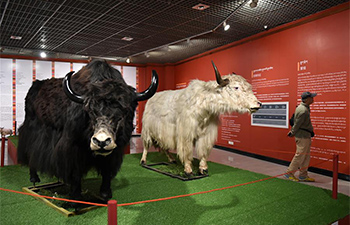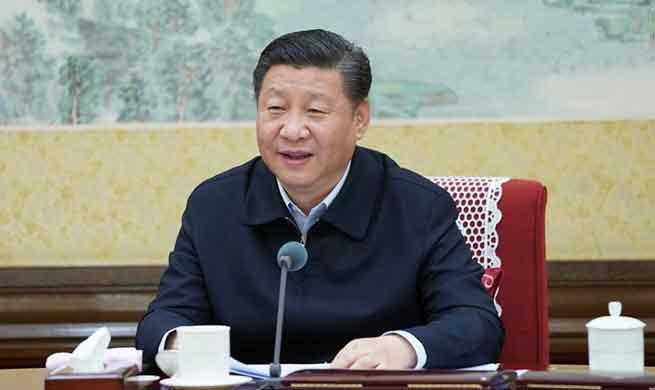"Confucian doctrines concern human nature, and human nature is the same the world over. Confucianism has a universal appeal. It is for us to make use of it," said Alan Chan, 85, a Singaporean businessman who now devotes himself to promoting Confucianism.
"Many things in Confucianism are outdated or inappropriate, but it still has a lot of wisdom," said Chan, a descendant of Chinese philosopher Zengzi, a disciple of Confucius.
Having published his own English translation of part of the Analects of Confucius, Chan funded the construction of a Confucius Neo-Institute in Qufu, in 2013.
The Analects reflect Confucius's political views, moral principles and educational ideas. "How happy we are to have friends from afar" and "Do not do to others what you would not want others to do to you" are among the classic sayings.
The World Confucian Conference or the Nishan Forum on World Civilizations is held in Qufu each year, attracting hundreds of scholars around the world. The town also hosts the International Confucius Cultural Festival each year.
TRANSMISSION AND MODERNIZATION
The Communist Party of China governs the country by both law and virtue. The report to the 19th National Congress of the CPC in October said "we will draw on China's fine traditional culture, keep alive and develop its vision, concepts, values and moral norms, and do so in a way that responds to the call of our era."
The ideas of Confucius, including rule by virtue, self-discipline in appeasing others and harmony in diversity, have been central to personal, family and social life in China.
Confucianism concerns the cultural rise of China, said Yan Binggang, deputy head of the Advanced Institute of Confucian Studies.
China is the center of international Confucianism, with the most research institutes, civil groups, academic exchanges and publications in this field, said Yan.
Yet Confucianism is often misinterpreted.
A study by Qin Hongwu and Kong Lei at Qufu Normal University, showed
that unlike the studies of dissemination that focus on concepts and notions of Confucianism, the ideological and receptive aspects of communication are given more priority in overseas media of some countries.
Basic research into Confucian classics should continue to accurately transmit the concepts, said Liu Xubing, deputy head of Confucius Research Institute in Qufu.
Meanwhile, new research is necessary to combine traditional culture with the contemporary world, he added.
"We need not only cultural self-confidence. We should also work to make others understand our fine traditions," said Li Jingxue, president of Jining Cadres Political and Moral Education College in Qufu, dedicated to enhancing the ethics of trainees.
Chen Li has given lectures to high-level public servants from Vietnam, Cuba and Fiji and several Latin American countries. She conducted a survey among foreign learners during the lectures and found only half of them knew about Confucius.
"The foreign trainees showed strong interest in Chinese culture as represented by Confucianism," said Chen.
Cultures in the world have distinctive advantages regarding important subjects such as the relationship between man and nature, said Lu Zequan, researcher with Confucius Research Institute.
With an open attitude, the Chinese are willing to share the wisdom of their culture but it is up to others to judge and absorb it, he said.

















